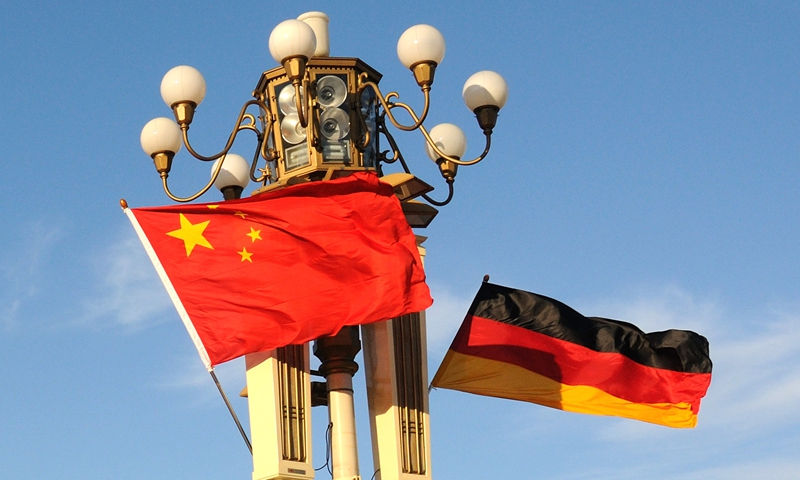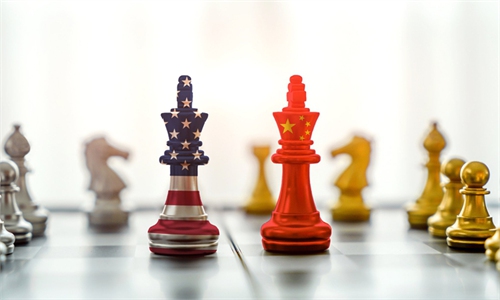Xi-Merkel phone call points direction for China-EU ties; helps to preserve Merkel’s political legacy on China policy: expert

China Germany: Xinhua
Chinese President Xi Jinping held a phone call with German Chancellor Angela Merkel on Friday, hours after Xi spoke by phone with US President Joe Biden. During the conversation with Merkel, Xi noted remarkable achievements in China-Germany ties and expressed hope for Germany to urge the EU to adhere to the correct policies toward China and handle disagreements rationally.
Analysts said that the tone of the two phone conversations was different, as China and the US are drawing bottom lines for each other while China and Germany are seeking common ground for cooperation.
Xi said that the frequent and efficient exchanges between him and Merkel over the past year have played an important guiding role for the development in China-Germany and China-EU relations. He said he highly appreciates the fact that Merkel has been actively committed to promoting Germany's and the EU's practical cooperation and friendly exchanges with China.
Xi noted that in recent years, China-Germany ties have generally remained smooth and cooperation in every field has shown strong resilience despite the COVID-19 pandemic, which has brought a concrete sense of gain for people in the two countries.
The two countries have helped China and the EU to complete their investment agreement negotiations on schedule, and worked together to uphold multilateralism, safeguarded free trade, and actively dealt with climate change, working together to defend world peace and stability, Xi said.
The fundamental reason for the great achievements of China-Germany relations lies in the fact that the two countries respect each other, seek common ground while reserving differences, focus on win-win cooperation and pursue complementation of their respective advantages, he said.
As long as the two sides insist on deepening mutual trust, respecting each other and focusing on cooperation, they can promote the bilateral ties to new levels, Xi said, expressing the hope that Germany will push for the EU to adhere to the right policies toward China and take objective, rational views on the differences.
Xi and Merkel's talk on Friday was not a surprise as the German leader is conducting farewell communications before stepping down later this month, Cui Hongjian, director of the Department of European Studies at the China Institute of International Studies, told the Global Times. And if it were not for the COVID-19 pandemic, she would definitely have visited China as she wants to preserve one of her political legacies - China-Germany ties - in the post-Merkel era in Germany, Cui noted.
Merkel paid a visit to the US in July and Moscow in August for farewell visits as Germany's chancellor. Germany has now entered election season, and there may be changes in its domestic political situation.
Xi's remarks also showed that China hopes the political transition in Germany will not affect China-Germany ties and that good cooperation will be carried on by Merkel's successor.
Merkel said during the conversation that she is willing to keep close communication with China and make joint efforts to push Germany and China as well as the EU and China to bridge gaps through dialogue and properly handle their differences.
Merkel said that the China-EU investment agreement is mutually beneficial for both sides and she hopes it can be ratified and take effect as soon as possible. She also noted that Germany hopes to strengthen vaccine cooperation with China.
During their conversation, Merkel gave her views on the situation in Afghanistan and expressed hope of strengthening communication and coordination with China within the United Nations and other multilateral frameworks.
President Xi stressed that China advocates coexistence and mutual learning among different civilizations, opposes interference in other countries' internal affairs, and stands ready to make constructive efforts with the international community, including Germany, to truly realize peace and stability in Afghanistan.
The tone of the two phone conversations was different. Cui noted that the Biden administration has inherited the core policies of former US president Donald Trump, regarding China as a rival and seeking to defeat it.
The EU has a different attitude, and its concerns over China are about its rapid development and its influence on the current international system. This is why they emphasized international order when talking with China, Cui said, adding that there is more common ground between the EU and China than divergence.
Although China's policies toward the EU and the US are different, it is undeniable that the EU and the US have had more coordination recently. China should also be alert toward some small EU countries and anti-China forces in the EU hyping issues about Xinjiang, Hong Kong and Taiwan with the encouragement of the US, which may gradually undermine the basis of China-EU ties.
Lithuania recently allowed Taiwan island's separatist authorities to open a "representative office" under the name of "Taiwan." In response, China decided to recall its ambassador to Lithuania and demanded that the Lithuanian government recall its ambassador to China.
Last week, the European Parliament's Committee on Foreign Affairs presented a report, titled "EU-Taiwan Relations and Cooperation," calling for elevating EU-Taiwan "political relations."
Cui noted that in facing a more complicated situation, China should be wise in dealing with the bilateral ties with the US and the EU as well as multilateral ties with the two.

